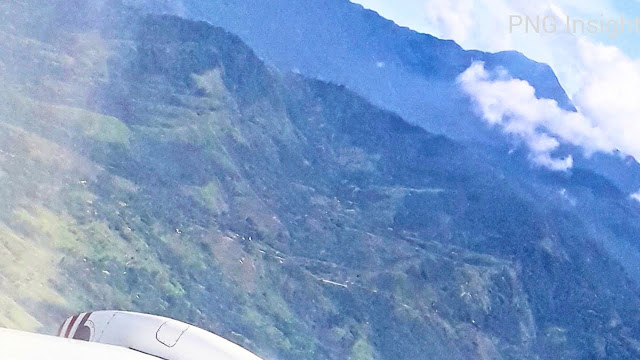Nestled near Bialla Town, West New Britain Province in Papua New Guinea, lies a force of nature that has both fascinated and struck fear into the hearts of scientists and locals alike—the mighty Mount Ulawun. It is known to be the highest and steepest of the 6 active volcanoes in PNG in 2023.
This active volcano, known for its explosive eruptions and hazardous nature, unleashed its fury force in 2019, spewing ash into the sky. On June 3, 2022, at 8:20 AM, Mt. Ulawun erupted briefly, urging heightened alertness.
It erupted recently on the 25th of September 2023 with a level 1 Alert issued by the Rabaul Volcano Observatory Centre. Here are some facts and the latest updates about Mt Ulawun Eruptions.
2023 Eruptions and Alerts: Mount Ulawun Erupts Again, Plumes of Ash Reach 15,000 Metre
Mount erupted again last night, 20th of November, 2023. The eruption was significantly larger than the previous eruption in September, with plumes of ash reaching altitudes of up to 15,000 meters (49,213 feet).
The eruption triggered a Stage 3 alert from the Geohazards Management Division (GDM) of Papua New Guinea. This is the highest alert level, indicating a significant risk of volcanic activity and potential hazards.
GDM has advised residents of surrounding areas to evacuate to safer locations and to monitor the situation closely. The division has also urged airlines to avoid flying near the volcano.
Ashfall from the eruption is expected to reach areas downwind of the volcano, including the town of Rabaul and the surrounding islands.
The eruption has also caused disruptions to air and sea travel.
Authorities are urging people in the region to exercise caution and to follow the instructions provided by GDM.
Mount Ulawun - One of the ''Decade Volcanoes."
Mount Ulawun stands out as one of the world's most hazardous volcanoes, earning its place on a list of "decade volcanoes."
These volcanoes, including Ulawun, are singled out for their potential to cause widespread devastation with large and violent eruptions. These explosive events often lead to the release of thick grey ash clouds, reaching heights of thousands of metres, as witnessed in its recent eruption.
The volcanic activity has been monitored by the country's Geohazards Management Division based in Rabaul and other Geohazards Management Centres in the Pacific, which plays a crucial role in keeping communities safe.
Papua New Guinea Volcano Eruption: Mt Ulawun Fury
The history of Mount Ulawun's eruptions is riddled with tales of destruction and resilience. In 2019, the volcano experienced a rapid succession of eruptions, causing thousands to flee their homes in fear.
The ash plumes soared high into the sky, even disrupting airline pilots' routes in the vicinity.
The eruption's impact was far-reaching, with ash fall observed in various places downwind from the volcano, illustrating the extent of its influence on the region.
Read about the latest PNG Volcano eruption on Bougainville's Mt Bagana
Ulawun Eruption 2023
On Monday, 25th September 2023, at 4:30 PM, Mount Ulawun in Ulamona, West New Britain Province, Papua New Guinea. At present the eruption is categorised as a level 1 eruption (on a four-level scale, according to the PNG Geohazards Management Division (Rabaul Volcanic Observatory Centre). This means that the eruption was minor and produced only a small amount of ash.
The eruption was accompanied by increased seismicity and volcanic tremors, but there were no reports of damage or injuries. The Geohazards Management Division is monitoring the volcano closely and will provide further updates as needed.
Mount Ulawun is an active stratovolcano that last erupted on August 3, 2019. It is located on the northern coast of New Britain Island and is one of the most active volcanoes in Papua New Guinea.
Mount Bagana, another active volcano in Papua New Guinea, is currently at a level of 2 alert, meaning there is a moderate risk of an eruption. The Geohazards Management Division is also monitoring Mount Bagana closely.
The Enigmatic Caldera Threat
One of the most intriguing aspects of Mount Ulawun is its looming threat of a catastrophic summit collapse, akin to the infamous 1980 eruption of Mount St. Helens. This possibility has earned the volcano its designation as a "decade volcano."
Scientists have noted that nearby large calderas tend to form when a volcano reaches around 1900 metres in height. With Ulawun towering at 2334 metres, the risk of a massive collapse or caldera-forming eruption is a cause for concern, potentially putting thousands of lives at stake.
The Fiery Forge of Ulawun
The volcanic history of Mount Ulawun is etched in its features. The scar on its southern flank is a reminder of an ancient summit collapse that occurred thousands of years ago, causing a significant portion of the volcano to slide northward.
Lava flows, often originating from satellite cinder cones, have shaped its landscape and pose an ongoing threat.
The volcano's eruptive power was evident in the colossal ash plumes of 2019, reaching remarkable heights and impacting the surrounding environment.
The Peril to Aviation
Mount Ulawun's eruptions transcend local impacts, reaching the skies and causing trouble for aviation.
Its explosive nature has made navigating the area a challenge for aircraft, with the threat of ash damaging engines.
The 2019 eruption, with its towering ash plume, serves as a vivid reminder of the volcano's potential to disrupt air travel, posing yet another layer of concern in managing its effects.
Resilience and Preparedness
In the face of Ulawun's relentless eruptions, local communities have showcased remarkable resilience. Evacuations and preparedness measures have become integral to the region's response strategy.
Authorities, both local and international Geohazards Management Centres, work tirelessly to monitor the volcano's activity and provide timely alerts to those in its shadow.
Learning from past experiences, the people of Papua New Guinea continue to adapt to the challenges posed by their fiery neighbour.
Uncertain Future, Everlasting Vigilance
As we contemplate the enigmatic nature of Mount Ulawun, one thing remains certain—it is a force to be reckoned with.
Its explosive potential, history of eruptions, and looming threat of a massive collapse keep scientists and communities on high alert.
While the future may hold uncertainty, the lessons learned from this volcanic giant serve as a reminder of the delicate balance between human habitation and the power of the natural world.
Conclusion (Papua New Guinea Volcano: Mt Ulawun)
The saga of Mount Ulawun unfolds as a tale of both awe and apprehension. Its towering presence, explosive eruptions, and potential for devastation weave a narrative that speaks to the intricate relationship between humanity and the forces of nature.
As we marvel at the power of this volcanic giant, we are reminded of the need for vigilance, preparedness, and the unwavering human spirit in the face of the unknown.

















